
Discover more from The Obsolete Man
In 1996, the documentary When We Were Kings was released. The film follows Muhammad Ali and George Foreman during the run-up to their legendary 1974 championship bout, held in Zaire and billed as The Rumble in the Jungle. Both fighters were at the height of their boxing careers and the world waited with excitement to see the two finally clash in the ring. Aside from the obvious draw of Foreman and Ali as generational boxing talents, the cultural and political implications at play made this fight more than just a boxing match.
Ali would be remembered as an all-time boxing great on the merits of his skill alone. What elevated him from his status as a great athlete to that of a cultural icon was his outspoken support for civil rights causes and his condemnation of the ongoing war in Vietnam. When drafted, he refused to serve, ultimately leading to his incarceration. Ali spent three years in prison, but established himself as both a heroic and divisive figure in an already deeply divided nation.
The documentary follows each boxer’s training camp as Ali and Foreman spar with their training partners and the media ahead of the fight. Ali is the underdog in the fight, but he is at the top of his game in every sense. We are watching an athlete that has reached a state of absolute excellence and knows it. Apart from athleticism, Ali shows his skill as a talented entertainer. His ability to effortlessly rattle off legendary quotes and sell both himself and the fight to the public is remarkable.
In addition to the events leading up to the fight itself, When We Were Kings manages to capture something remarkable. As the film progresses we realize that we are not just watching a compelling story about a great chapter in sports history. We are also witnessing the moment that a heroic figure reaches the apex of both his career and life. All the disparate elements of Ali's success and skill had been honed to perfection ahead of this event. The documentary is a captivating record of a unique event in history and the men who created it.
As I watched, I wondered whether Ali would have sensed that he was standing at the peak of his career and life at that moment. Is it possible to understand something like that as it is happening?
High Seas
When We Were Kings oddly reminded me of a film I saw years ago called Pirate Radio (released as The Boat That Rocked in non-US markets). It’s one of those movies that has all the elements of a great film, but doesn’t manage to put them all together in the right way. A great cast, a great soundtrack, an interesting premise and story...and yet it just didn’t fully figure itself out. Faults aside, the movie does contain a few moments that have stuck with me.
Pirate Radio is loosely based on a true story about the early days of rock radio in the UK. In the mid-1960’s, the British government kept a tight leash on radio programming. Rock music was exploding worldwide, but still considered inappropriate for the airwaves. As a result, pirate radio stations popped up to provide unlicensed broadcasts of the music that was taking the youth of the country by storm.
The film follows a group of DJs living aboard a weathered old ship that has been converted to a floating radio station. They spend their days dodging the authorities while broadcasting unauthorized rock music from the North Sea. James, the teenage son of one of the station's ringleaders, spends a summer on the ship getting to know the cast of eccentric and iconic radio personalities.
Philip Seymour Hoffman plays the lone American DJ, known to listeners as The Count.
In a quiet moment, The Count shares his thoughts with James about his time on the ship:
"You know, a few months ago, I made a terrible mistake. I realized something, and instead of crushing the thought the moment it came I... I let it hang on, and now I know it to be true. And I'm afraid it's stuck in my head forever. These are the best days of our lives. It's a terrible thing to know, but I know it."
That line has always stuck with me.
The Count sees his realization as “a terrible thing to know”. I understand what he means. If you were certain that you were experiencing the best time of your life, you might then reach the conclusion that the remainder of your life will be all downhill.
It makes sense, but I think that there is a different way to look at this.
Small Steps
Let’s use perhaps the most clear-cut example of a person experiencing an undeniable peak in their life: Neil Armstrong. The first man to walk on the moon. An honor that is unique in all of human history. It’s hard to imagine what must have been on the man’s mind as he prepared to descend that ladder and make history in the most dramatic way possible. Whatever he may have been thinking, Armstrong at some level had to know that he would never top this moment.
Neil Armstrong was 38 when the landing happened. How does the rest of a man's life fit unfold after having experienced something so extraordinary?
Well, after the Apollo 11 crew completed their mission, Armstrong retired from the astronaut corps and became a professor at the University of Cincinnati. He taught aerospace engineering and helped start the careers of young people with the same passion that had defined his own life. Armstrong would also be a part of the investigative probes of the Apollo 13 incident and the Challenger disaster.
Neil Armstrong surely knew he would never again experience something as incredible as the Apollo 11 Mission. He also didn't seem to view the portion of his life following that event to be some sort of let-down. He carried on in his field. He mentored young people as they began their careers and was able to lend his invaluable knowledge and experience toward efforts to create a safer path for those following in his footsteps. Armstrong reached a peak that few others have come close to, and then descended from the peak with grace and extended a helping hand to those that would follow. An incredible life of adventure that had a definite high-point, but did not dissolve into irrelevance afterwards.
Let It Be
Consider the staggering career and influence of the Beatles. In seven short years, four guys from Liverpool changed the world. Music, popular culture, and the story of the twentieth century as a whole will forever include their contributions.
The members of the Beatles would go on to have successful solo careers following the band's breakup. They would each have separate lives and experiences which were no doubt meaningful and rewarding. But if asked to look back on the totality of their life, is there a chance that any of them would say that they reached a high equal to that of their time as a Beatle?
All things come to an end, and the final live performance of their incredible run took place on the roof of their production company headquarters.
The band would record one more album, but the writing was on the wall for the Beatles. We can't know for sure, but I imagine the sheer gravity of the experiences they shared must have been on their minds as they played their last set that day.
The Summit
Most of us won't walk on the moon, take on the heavyweight champion of the world, or record Abbey Road. We can all still relate to these figures in our own lives, though. It isn’t always easy to take stock of our experiences while we are immersed in them, but many of us can look back on our lives and point to a specific period or moment that stands out among others. I’d bet for most of you reading this, it came to mind pretty quickly.
Maybe it was a time of important personal achievement. Maybe it was the start of a meaningful relationship. Maybe an era where you were surrounded by a group of friends that you really bonded with on a deep level.
Maybe you’re living in those days right now.
Would you know?
In Pirate Radio, The Count has an important realization, but he draws the wrong conclusion from it. He understood that he had reached the high-water mark of his life. Rather than fully living in that moment, he wasted it by focusing on its inevitable end.
If a person is aware enough to sense that they're living their best days, and if they can manage to remain present and grateful for those days as they happen, then they’ve lived their life as well as any person can.
It’s the opposite of a terrible thing to know.
Subscribe to The Obsolete Man
“I'm a human being, I exist. And if I speak one thought aloud that thought lives, even after I'm shovelled into my grave.”





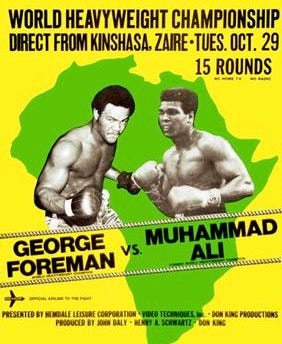
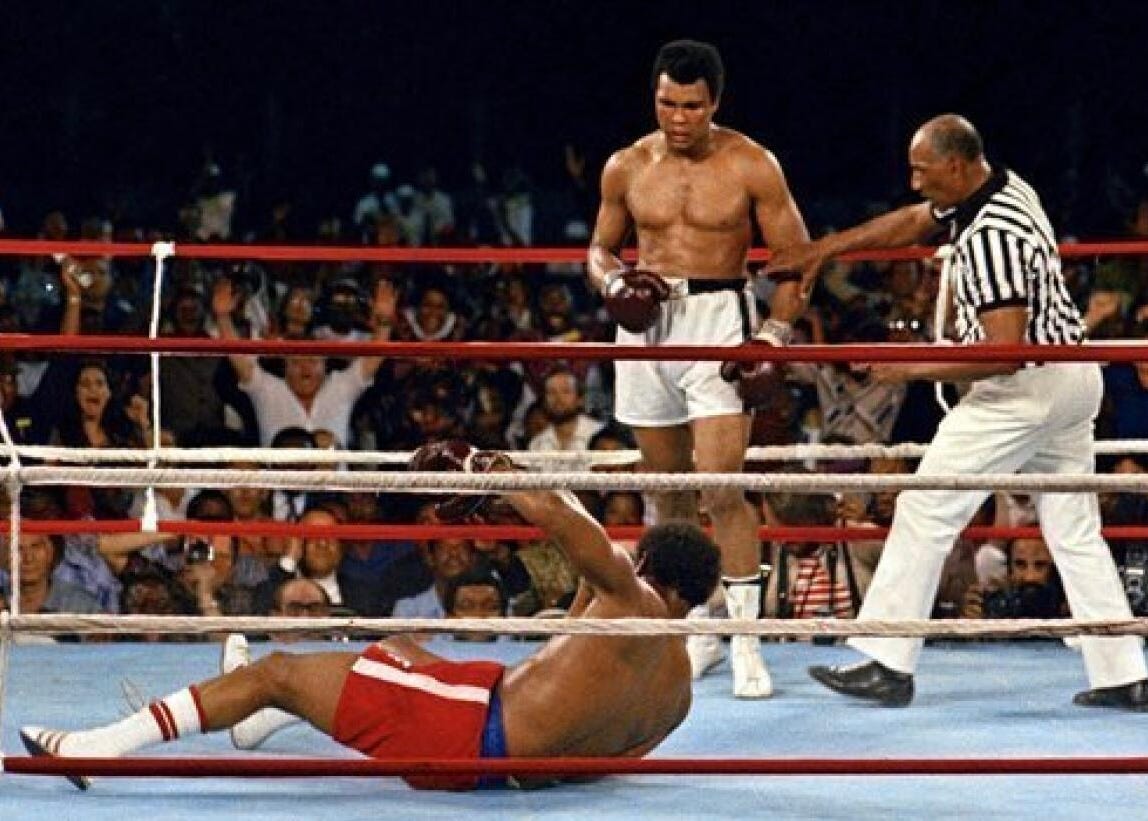
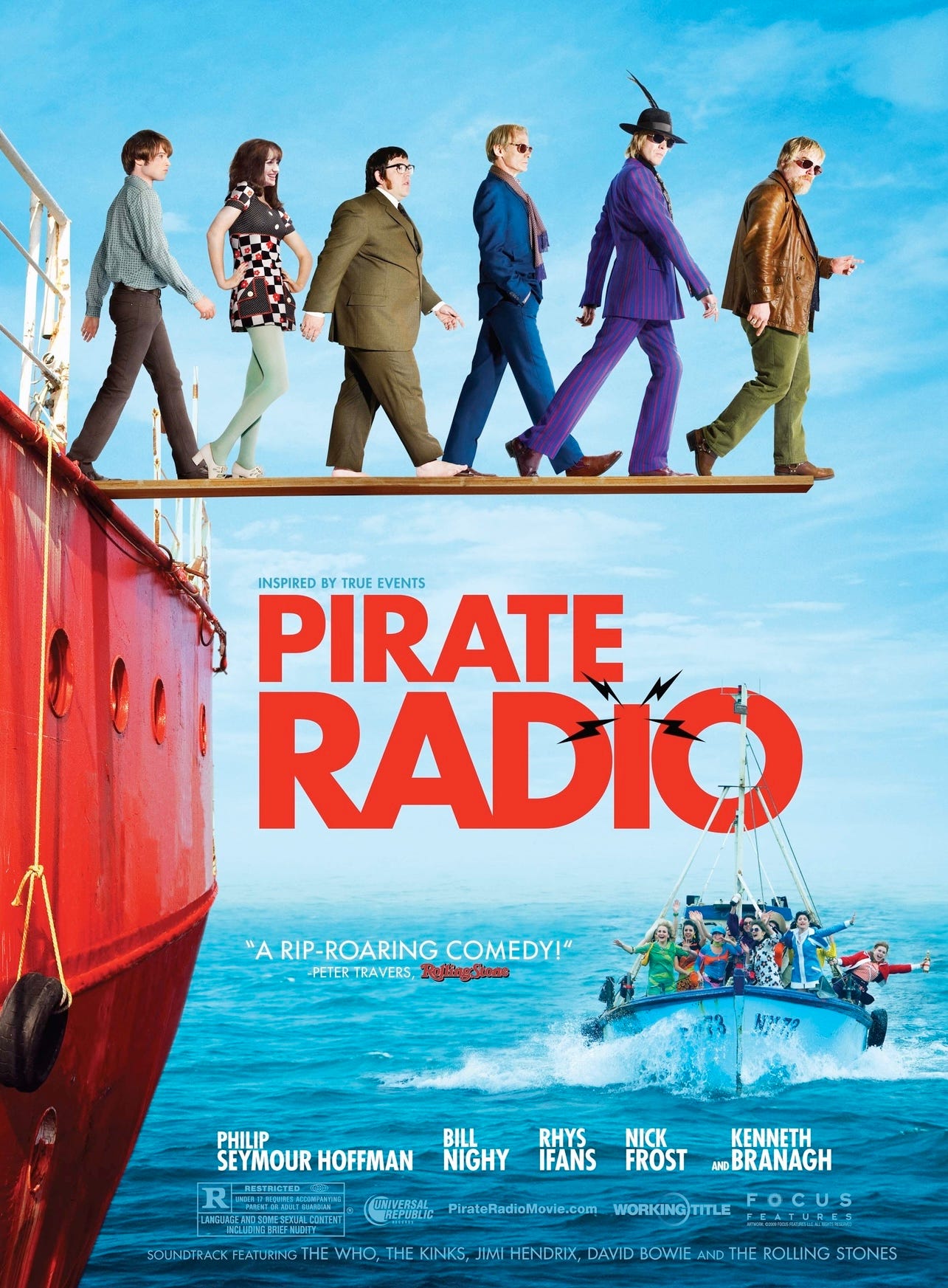
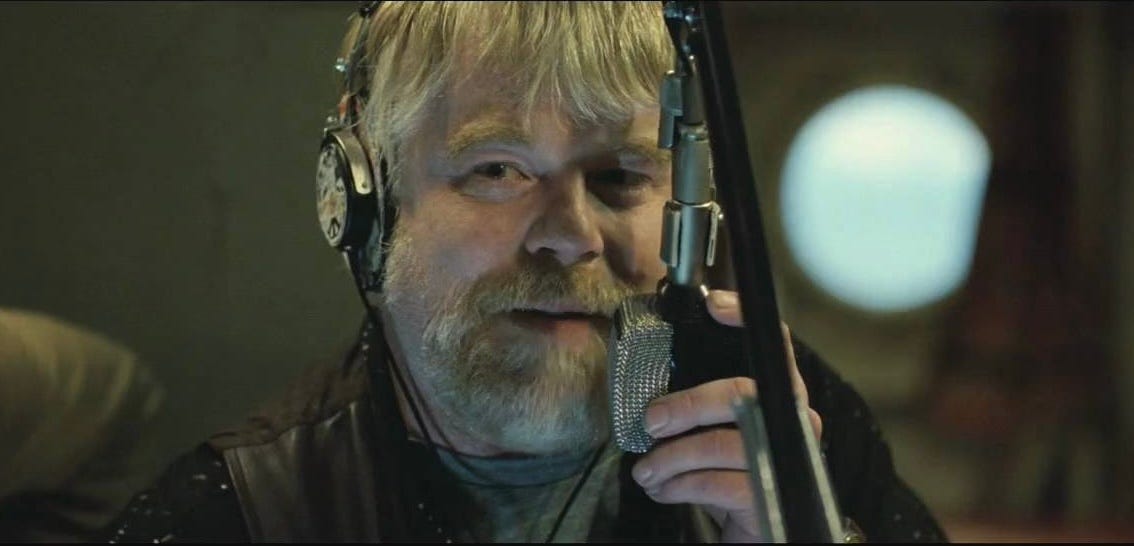

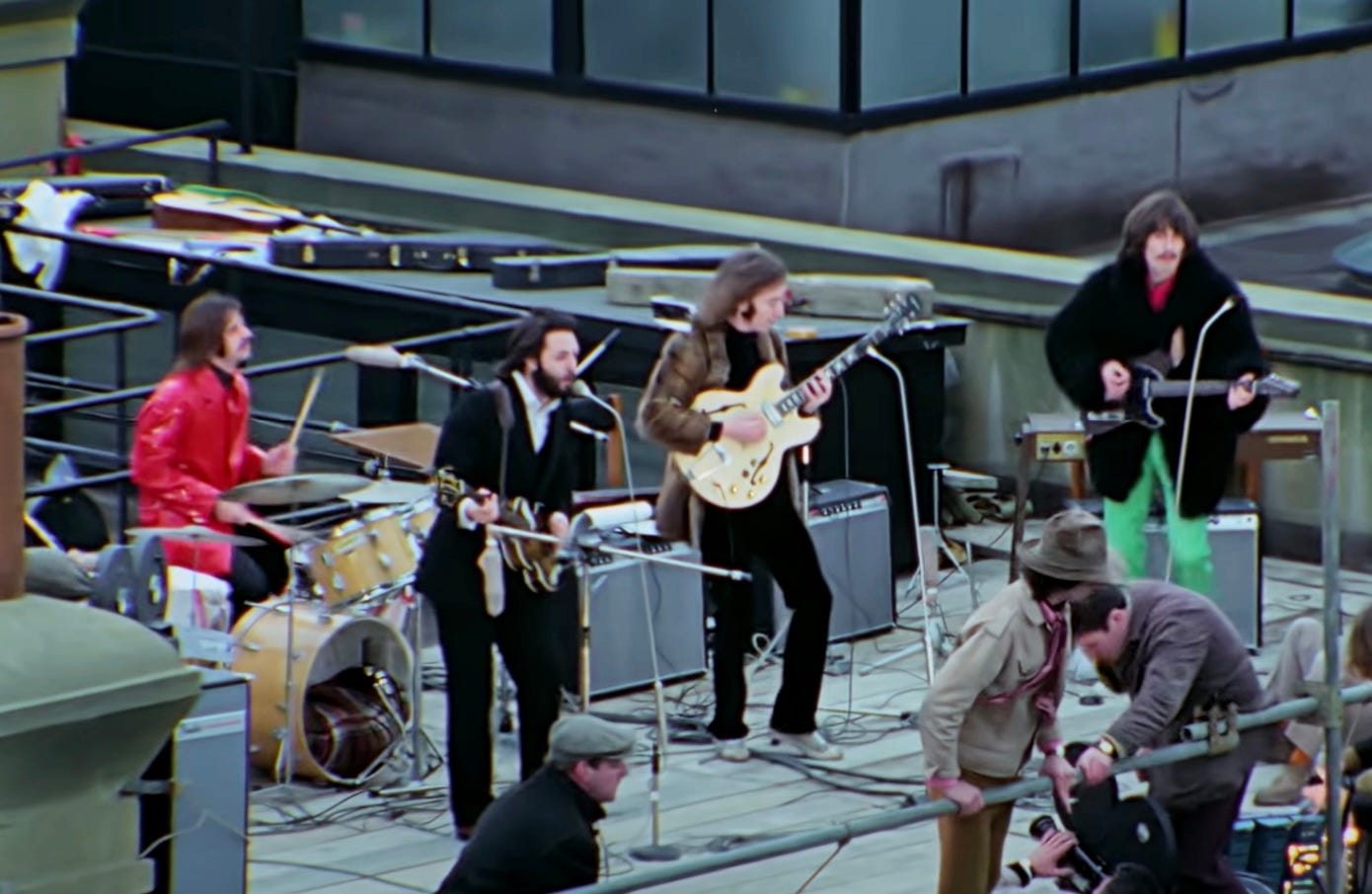











Thank you for reading!
I think Hoffman"s character represents the pessimist in all of us. The awareness immersing in the moment is difficult if you are the thinking type.
I think many of today's problems are caused by this. Those who can't lose themselves in the moment so they fret about the future and they ruminate on their past. I definitely struggle with this myself.
Living in the moment is difficult. For some it may have to be an acquired skill.